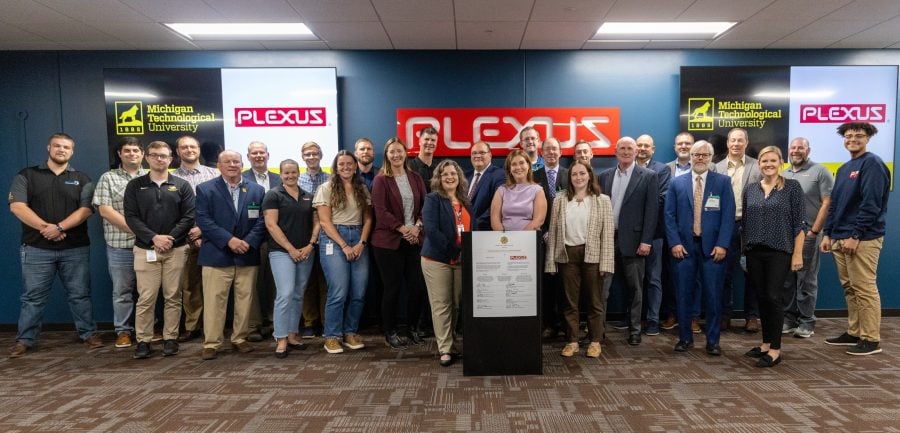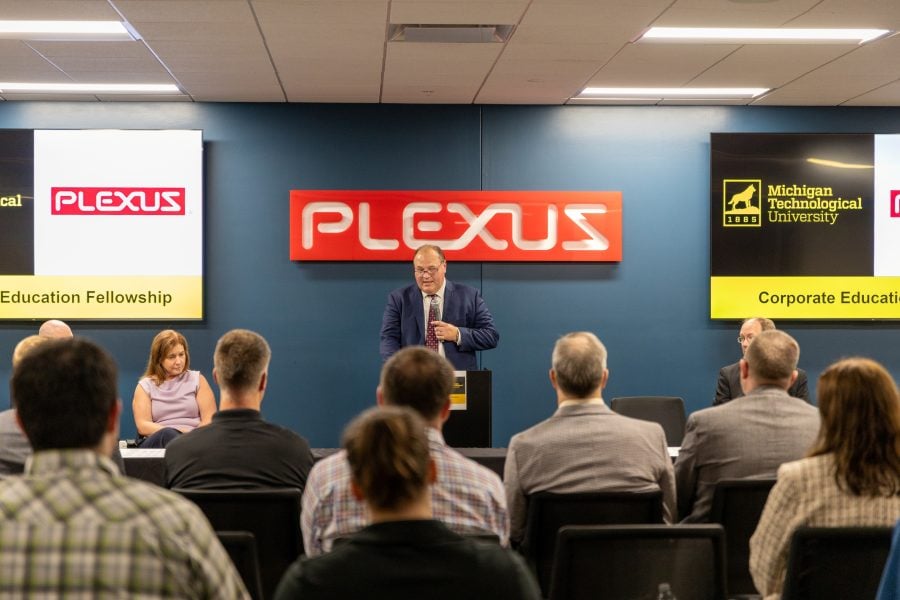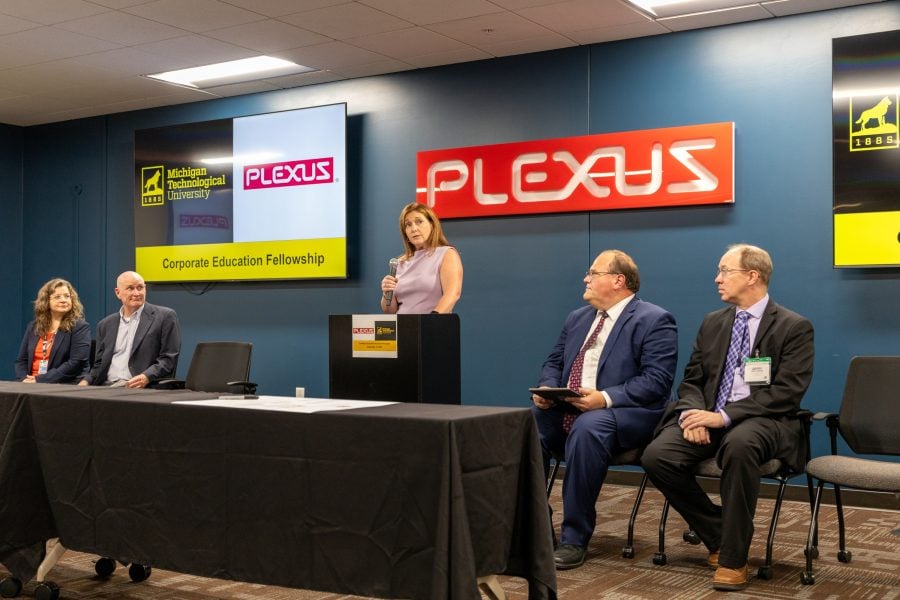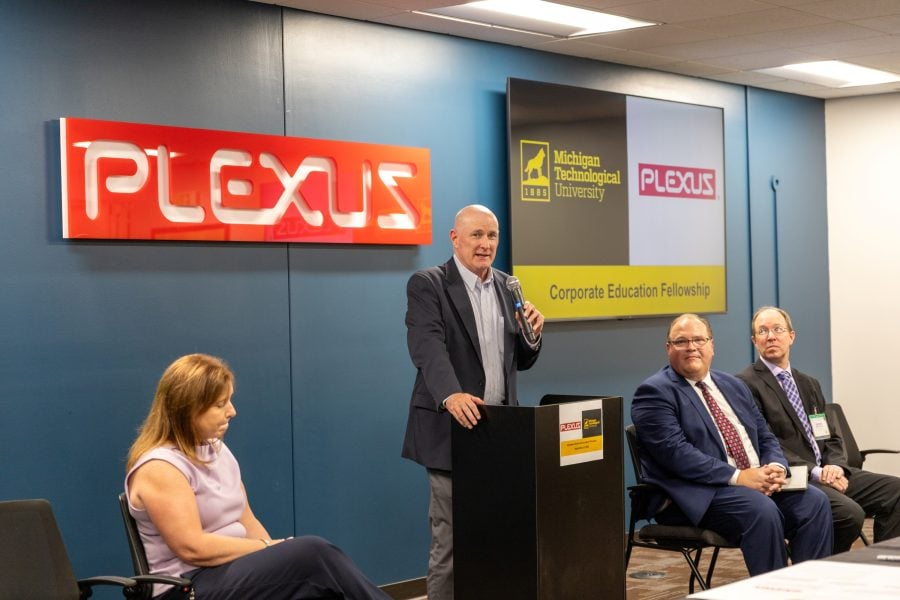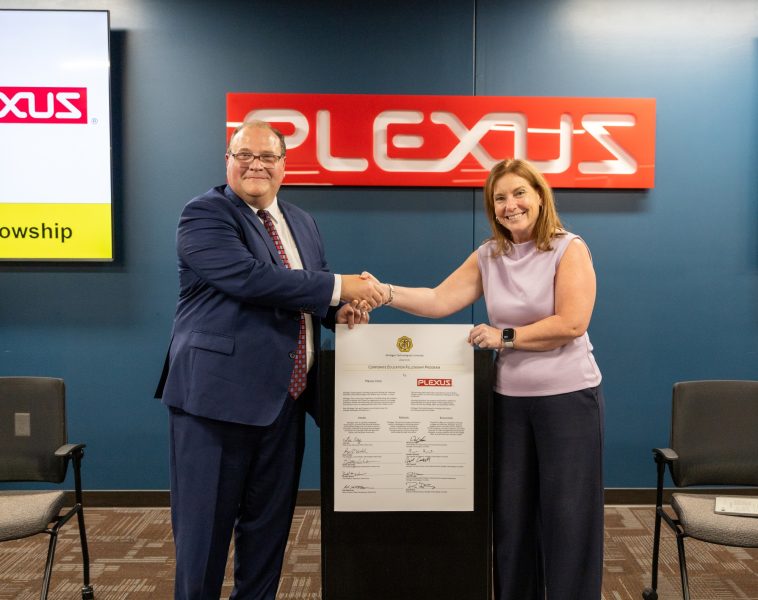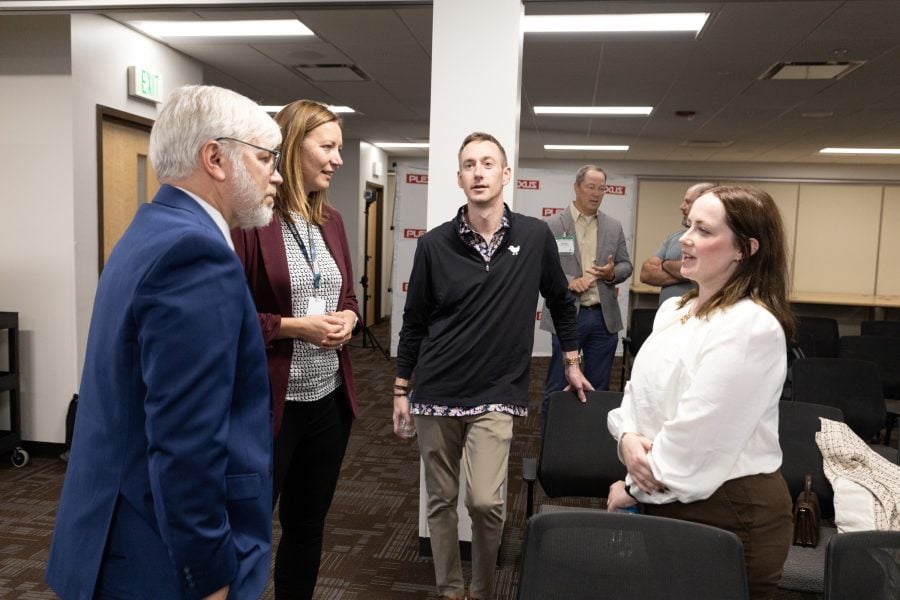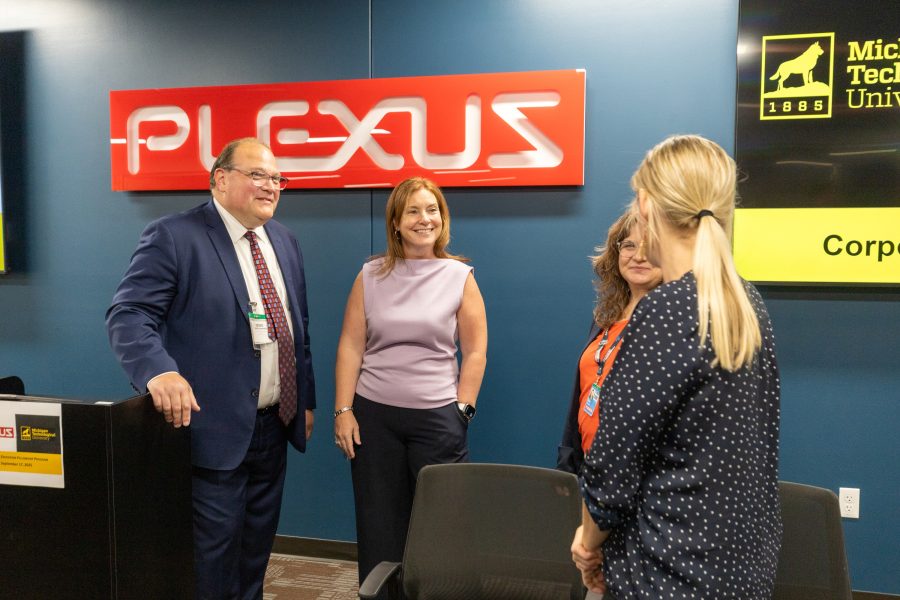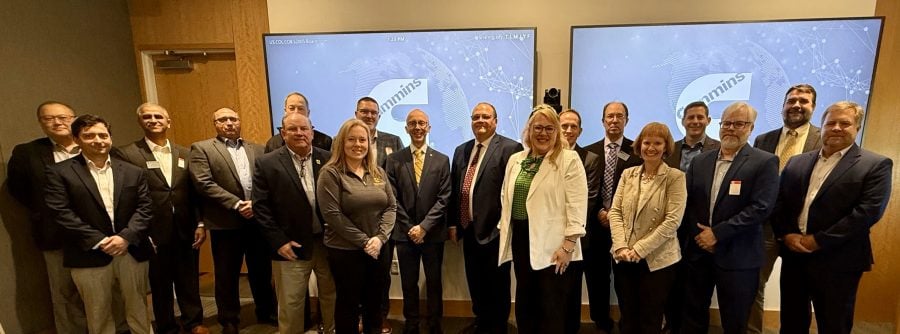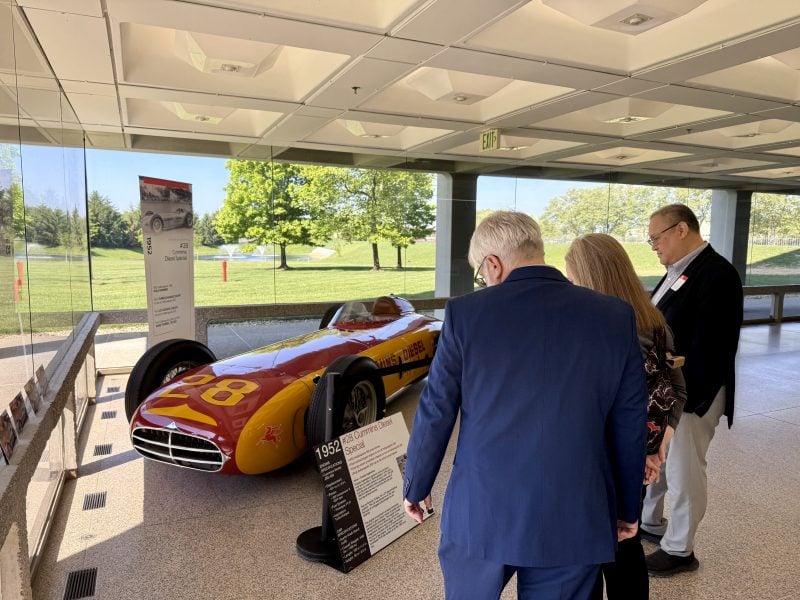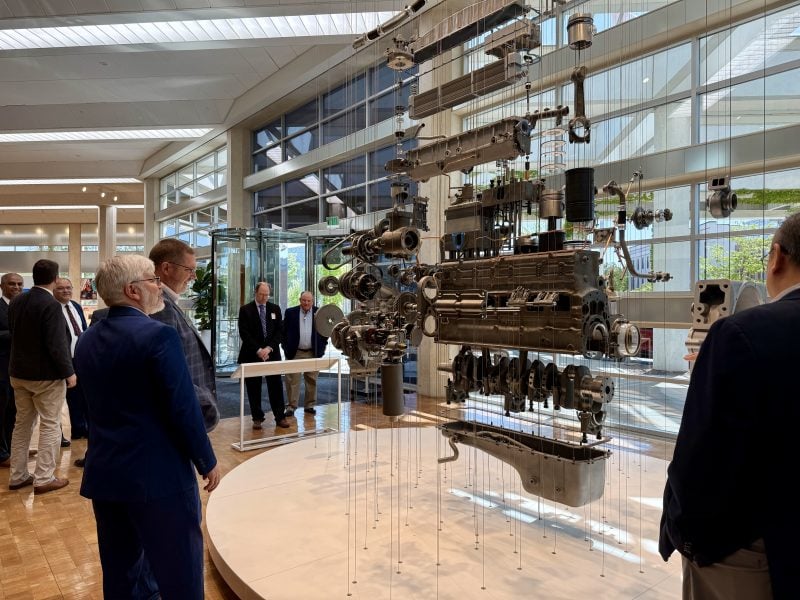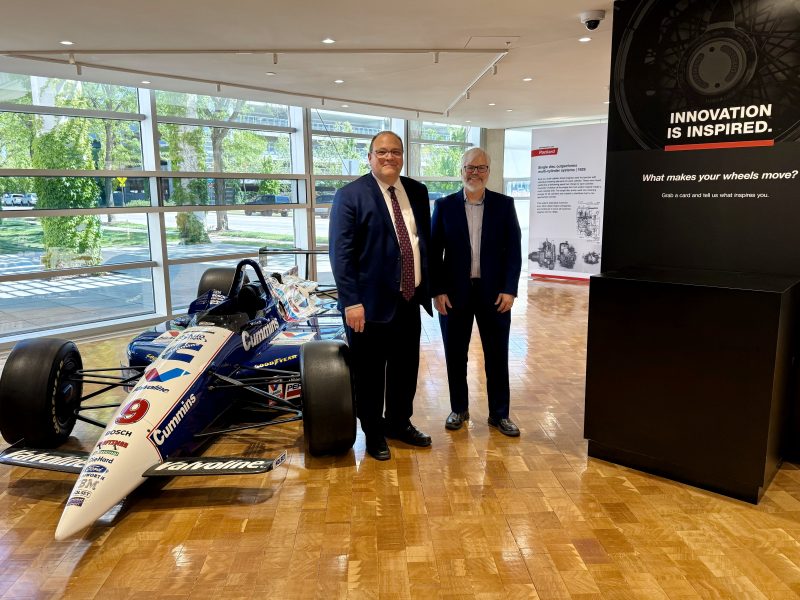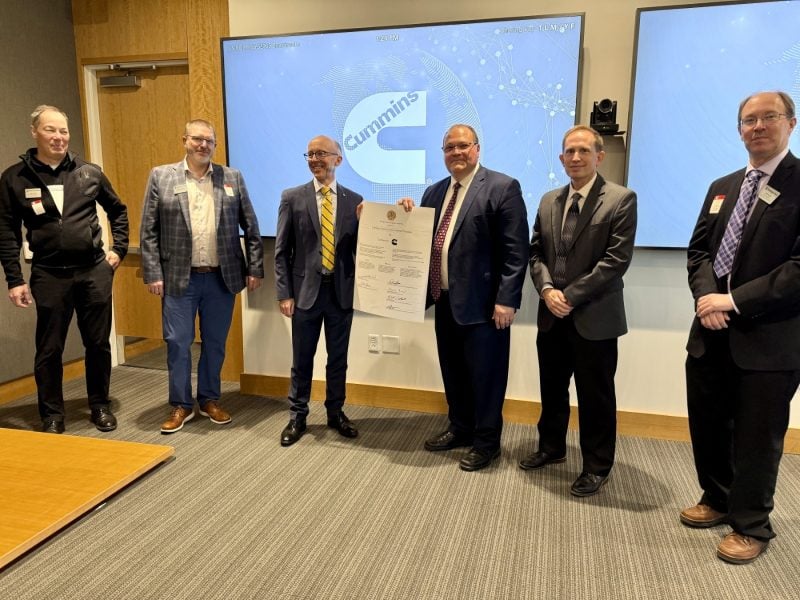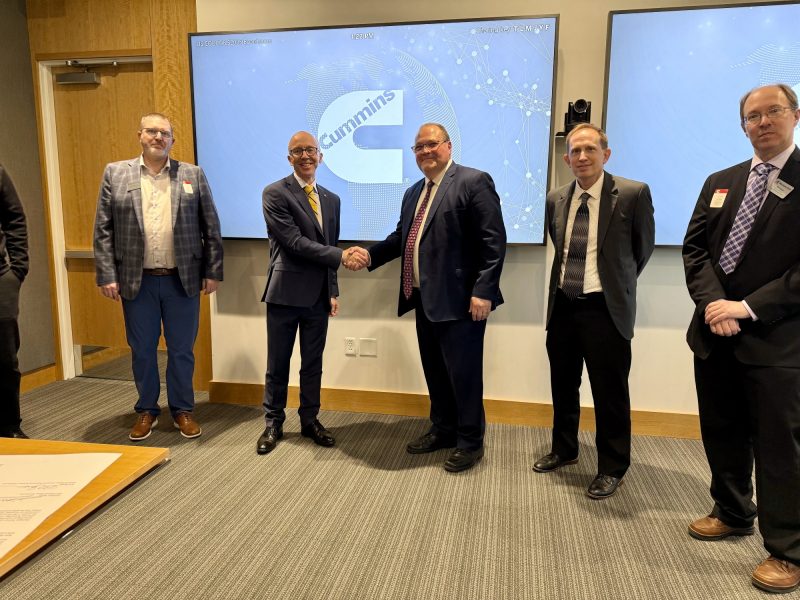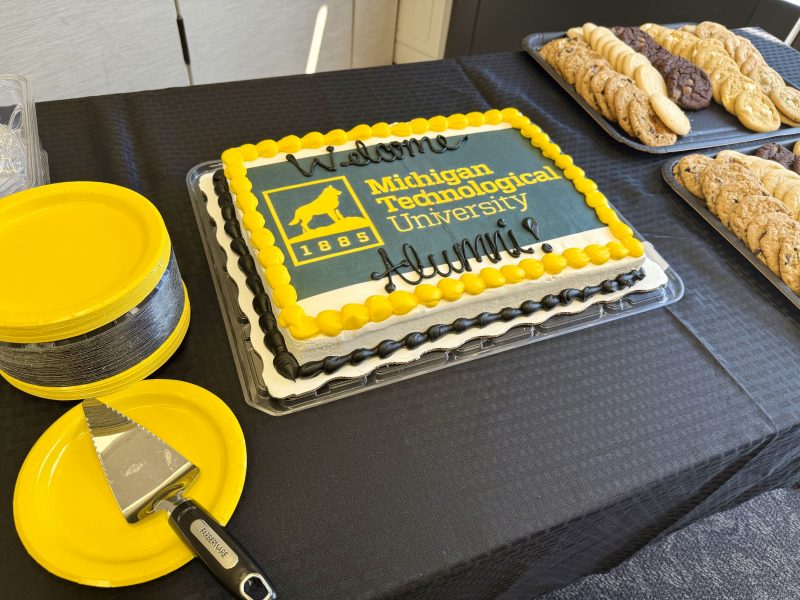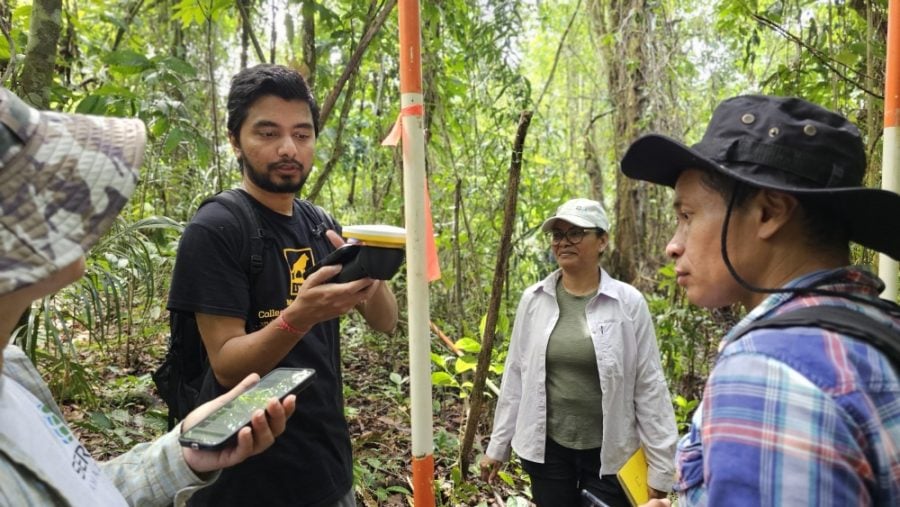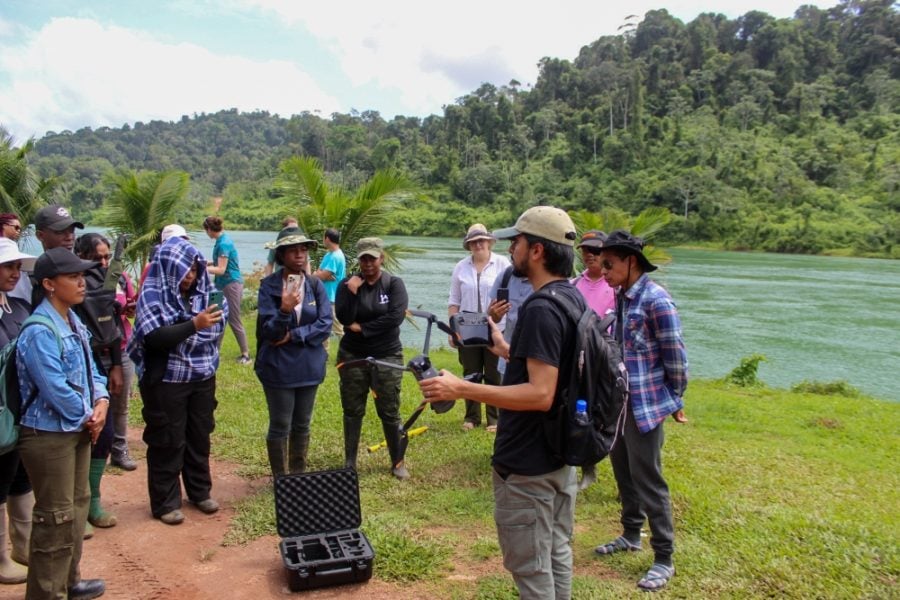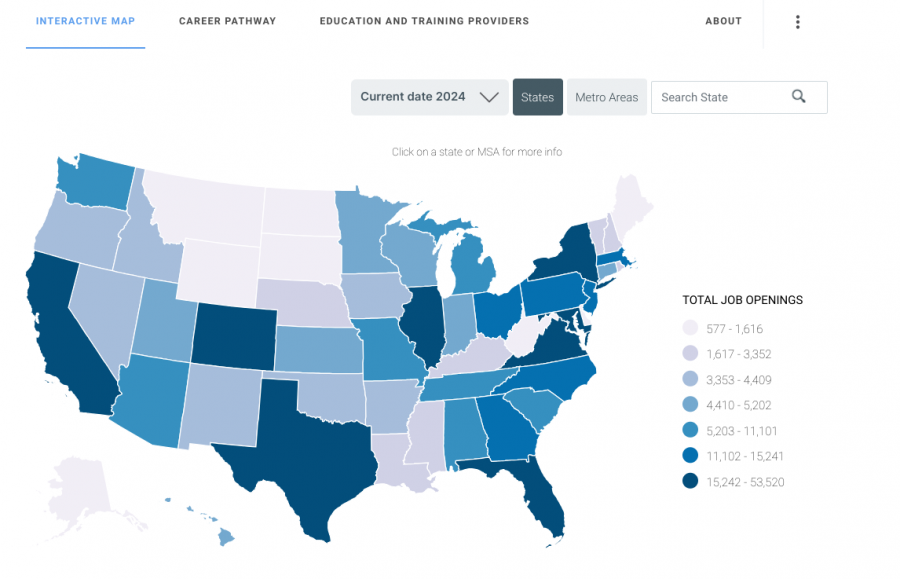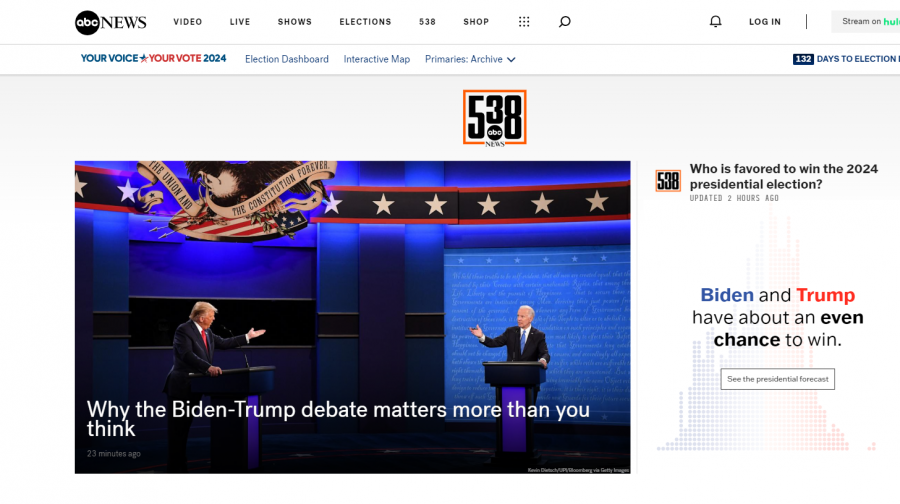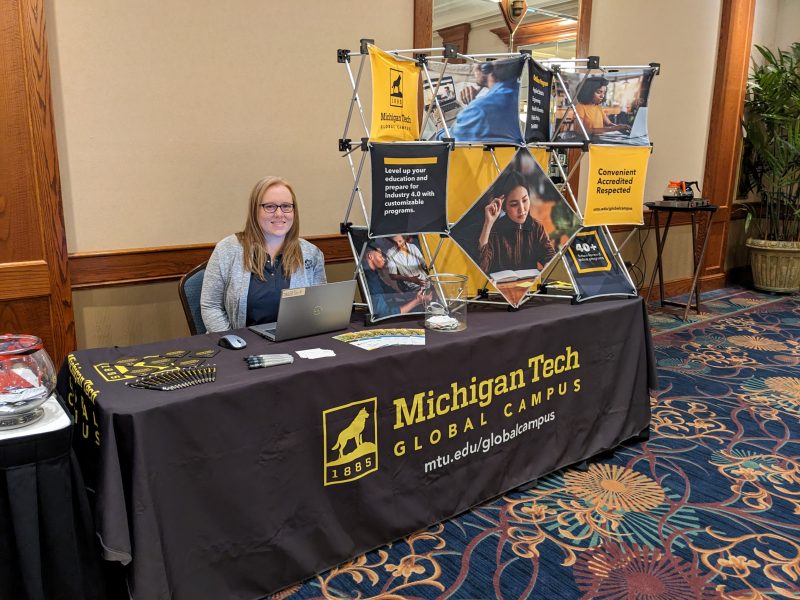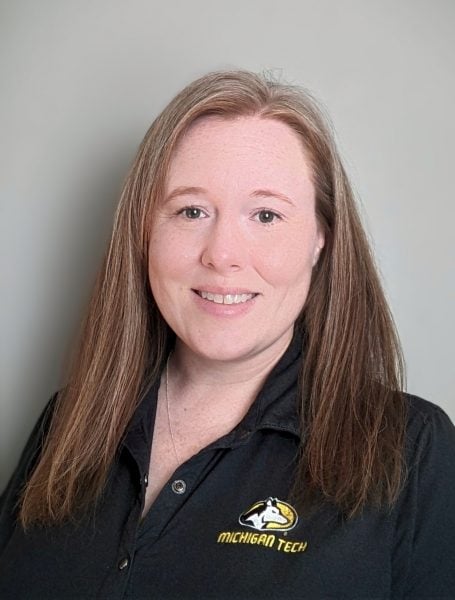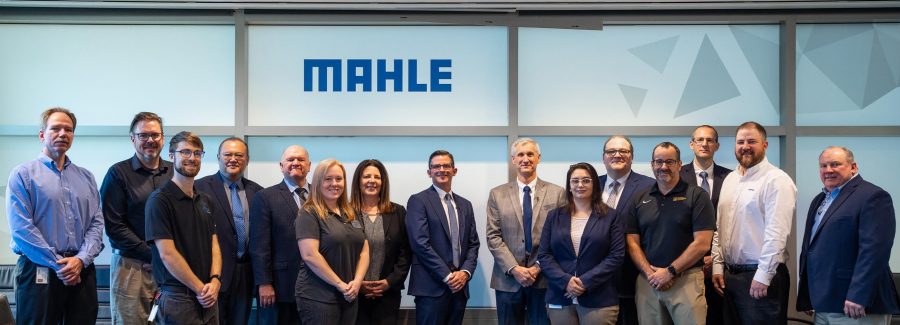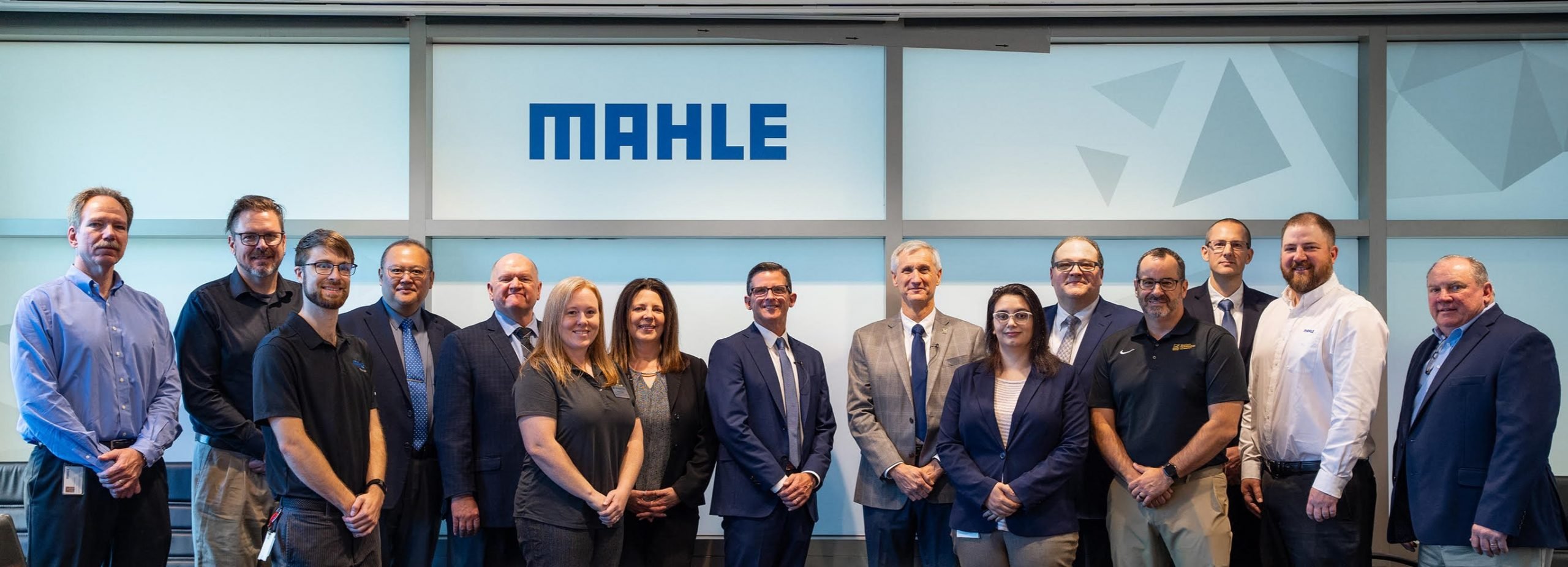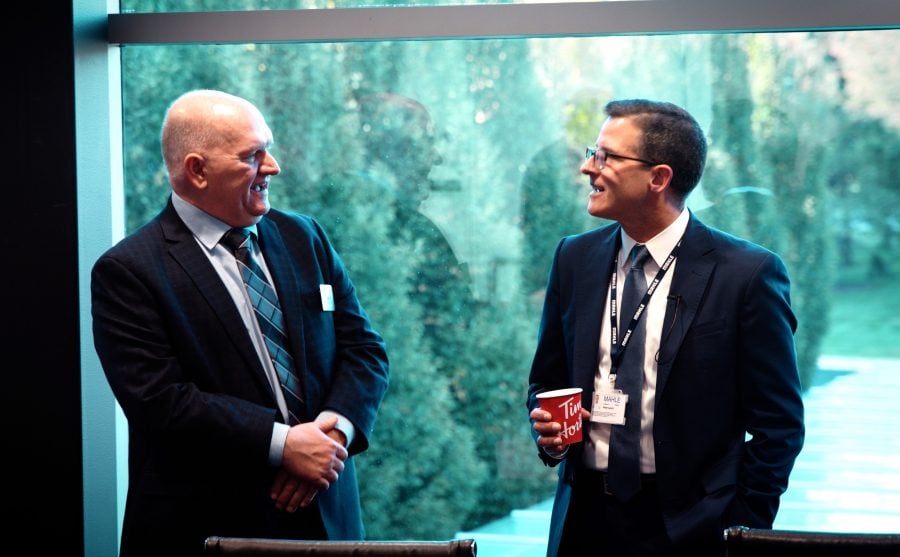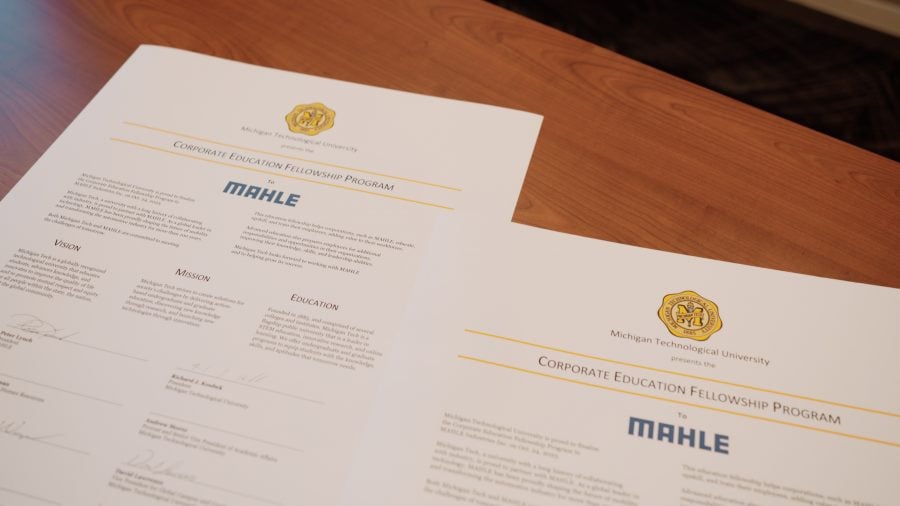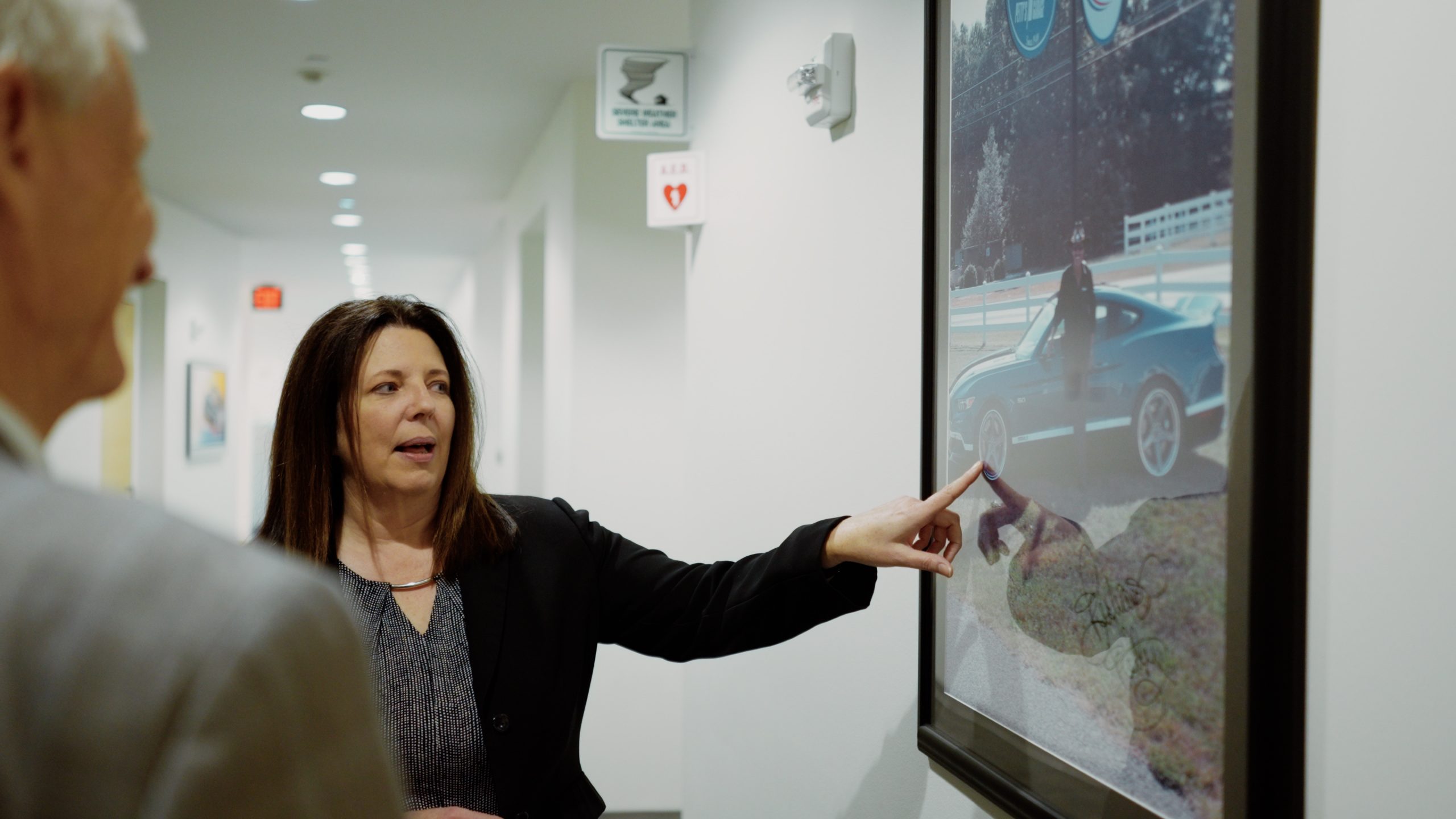(Team members of Plexus and MTU at the event. Directly behind the podium are Kim Cannon (left), David Lawrence, and Lori Ney.)
On Wednesday, Sept. 17, 2025, the Michigan Tech Global Campus team and a cohort of leaders, esteemed professors, and directors from Michigan Technological University travelled down to Plexus Corp.’s Neenah Operations in Neenah, Wisconsin. Their goal was commemorating the signing of the Plexus Corporate Education Fellowship Agreement.
Attending for Michigan Tech were David Lawrence, PhD, vice president for Global Campus and corporate partnerships; Will Cantrell, PhD, associate provost and dean of the Graduate School.
MTU was also represented by Andrew Barnard, PhD, vice president for Research; Jason Blough, PhD, chair and distinguished professor, Mechanical and Aerospace Engineering; Chris Middlebrook, PhD, professor, Electrical and Computer Engineering. Rounding out the MTU team were Rick Berkey, director of Global Campus; and Brian Hannon, director of Strategic Partnerships
Representing Plexus Corp. were Lori Ney, chief Human Resources officer; Ryan Veleke, vice president of AI and Decision Technologies; Kristy DeLeeuw, vice president of Enterprise Transformation. Also in attendance were Donald Jahner, vice president of Operations; Rob Hathaway, senior director of Talent Development; Kim Cannon, Talent Management Operations manager; and Brittany Selner, manager of Communications and Community Engagement.
Other members of the Plexus team as well as MTU Alumni were also in attendance.
Advancing Innovation with Plexus
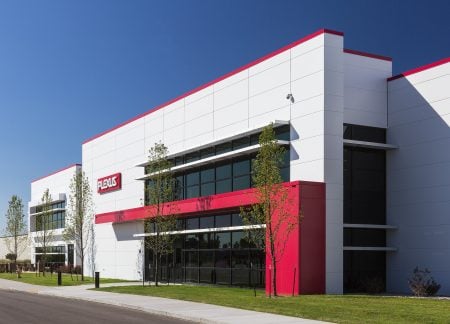
Plexus, globally headquartered in Neenah, Wisconsin, employs 20,000 team members worldwide, all guided by their vision to help create the products that build a better world.
In partnership with leading companies across Healthcare / Life Sciences, Aerospace / Defense and Industrial markets, Plexus designs, manufactures, and services some of the world’s most transformative products.
(On the left: Plexus Corp.’s Neenah Operations)
These are products that directly impact lives: advanced surgical systems, diagnostic instruments, and healthcare imaging equipment. They are also mission-critical aerospace systems, semiconductor testing and manufacturing equipment, and electric vehicle charging solutions.
Plexus’s customer engagements extend across a suite of services. These include product design, product commercialization, supply chain design, product launch, manufacturing and sustaining services.
Investing in People
The Corporate Education Fellowship provides Plexus employees with the opportunity to pursue graduate education through Michigan Tech’s Global Campus. That is, through this fellowship, eligible employees can enroll in online graduate certificates or graduate degree (MS and PhD) programs. This advanced education enables them to develop industry-relevant skills, explore professional interests, and address the varied needs of their stakeholders.
This fellowship also reflects Global Campus’s broader missions: strengthening partnerships between academia and industry, expanding access to high-quality online education for a diverse community of adult learners, and supporting professionals as they advance in their careers and grow alongside their organizations.
Signing the Agreement
The afternoon began with the well-attended ceremonial signing event. David Lawrence, vice president of Global Campus and corporate partnerships, began by introducing the Corporate Fellowship Agreement and highlighting the value of partnerships between industry and academia.
Next, Lori Ney, Will Cantrell, and Rob Hathaway all weighed in on the value of advanced education for not only allowing Plexus employees to pursue their personal and professional goals, but also enhancing the growth and future of organizations. Afterwards, the partnership document was formally signed, sealing the agreement.
At Plexus, our Vision is to help create the products that build a better world, and that Vision is guided by our Values, which unite and guide us in everything we do. Our Growing Our People Value is a fundamental commitment to our team. By investing in development of our employees, we not only help them reach their full potential, but we also strengthen our entire organization. Chief Human Resources Officer of Plexus, Lori Ney
Following the ceremonial signing was a group photo and then an informal networking event. Representatives from Plexus and MTU as well as alumni gathered for conversation, light refreshments, and, of course, cake!
The celebration of the partnership continued with a tour of Plexus’s state-of-the-art manufacturing facility. The facility, completed in 2013, was built to accommodate the rapid growth of Plexus and replace multiple leased facilities, which brought team members together under one roof. The building also has additional space to create more jobs as needed. The open, light-filled spaces promote collaboration, community, and creativity: the ideal locale for signing an innovative agreement that bridges industry and academia.
Building the Future Together: Michigan Tech and Plexus
The signing and gathering solidified Michigan Tech’s continuing partnership with Plexus, a company known for driving innovation while equipping its workforce with the skills to meet evolving industry challenges.
Michigan Technological University looks forward to strengthening its collaboration with Plexus and to supporting the company’s continued success.
